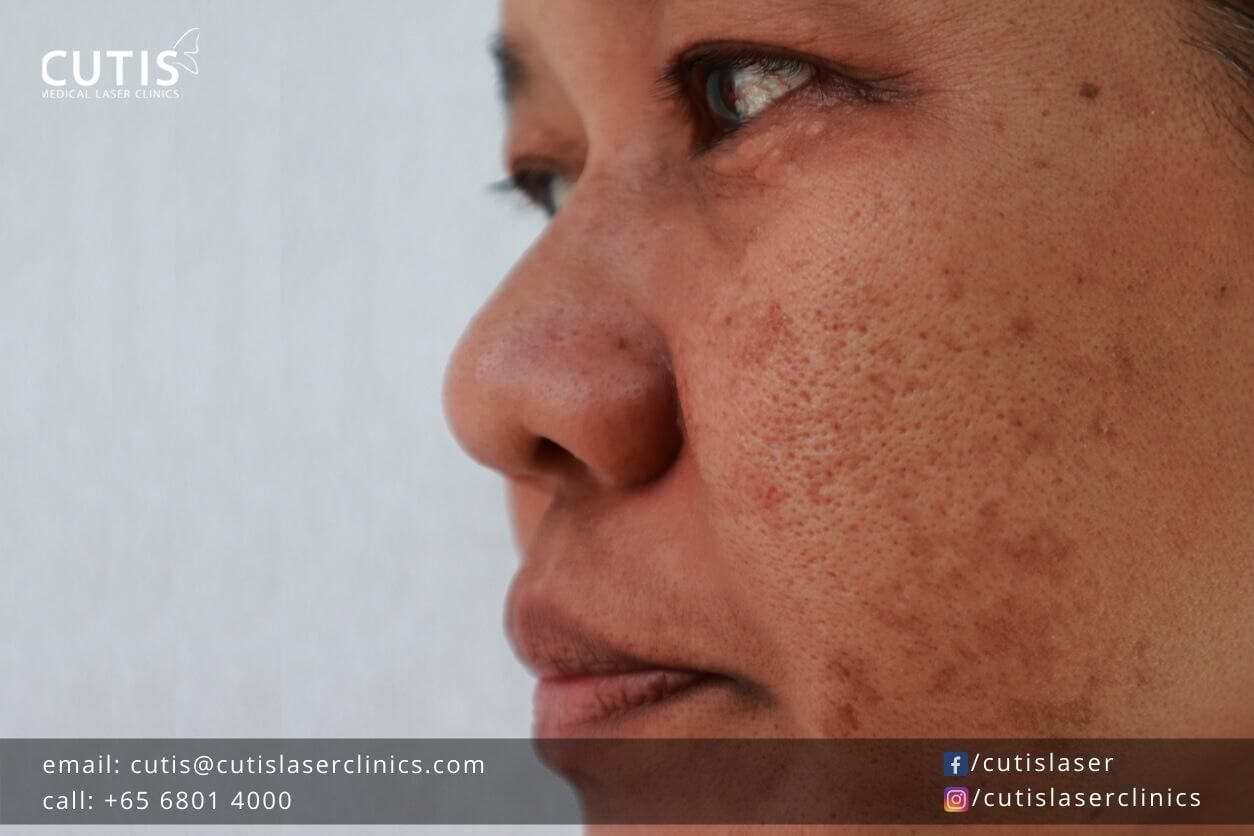 Misconceptions surrounding pigmentation may be the reason why you have dull skin and are not getting rid of your dark spots. These myths can also mislead you, preventing you from having a better relationship with your skin.
Misconceptions surrounding pigmentation may be the reason why you have dull skin and are not getting rid of your dark spots. These myths can also mislead you, preventing you from having a better relationship with your skin.
In this post, we share the 5 pigmentation myths you shouldn’t fall for:
1. Avoiding the sun is a surefire way to be free of pigmentation.
While sun exposure can cause sunspots and make existing pigmentation worse, avoiding it altogether will not always prevent pigmentation. This is because dark spots can also be caused by other factors like irritation from cosmetics, aging, and hormonal fluctuations from birth control pills or pregnancy.
It is, however, still important to limit your sun exposure or protect your skin against the sun. This means applying broad-spectrum sunscreen with an SPF of 30 or higher daily, even on cloudy days. You can also benefit from wearing protective clothing like long-sleeved shirts or long pants whenever possible.
2. Once the dark spots are treated, they won’t back.
Even if you had your dark spots treated or lightened before, it is not a guarantee that they will stay that way forever. Dark spots and pigmentation will keep appearing or developing due to a number of factors like aging, irritation, UV exposure, and hormonal changes.
Undergoing pigmentation treatments can help, especially in improving or lightening the appearance of dark spots. The right treatment can also prevent your pigmentation from becoming worse. You should also take better care of your skin to reduce your chances of getting dark spots. A few things that can help include:
- Applying sunscreen daily
- Treating acne properly
- Avoiding picking or popping blemishes
- Using Vitamin C or antioxidant serum
- Avoiding tanning
3. Melasma or pigmentation caused by pregnancy is not treatable.
There may be no present cure for melasma, but there are treatment options that can improve its appearance. There are also instances where melasma due to pregnancy can fade away on its own after a few months.
You can also lighten and reduce pigmentation using skin-lightening creams with hydroquinone. This ingredient is clinically proven for fighting hyperpigmentation at a cellular level. Certain oral supplements with Phytofloral and Tranexamic acid can also treat brown spots and melasma on the skin.
4. Scrubbing and over exfoliating can improve your pigmentation.
Although exfoliation can get rid of your dead skin cells, it will not remove your pigmentation. This is especially true if you scrub your face too much or rub skin vigorously. Doing so can result in irritation and skin, as well as higher risk of developing dark spots.
Damaged skin is more likely to develop dark patches. Moreover, exfoliating too much can disrupt the natural pH balance of the skin. It can also cause dryness, prompting the skin to produce more oil or sebum. This can clog the pores and contribute to blemishes, which may result in post-inflammatory hyperpigmentation (PIH).
5. Pigmentation treatments are expensive and ineffective.
Results of pigmentation treatments vary from patient to patient. Some respond quickly, but others may have to wait longer to see improvement. A consultation with a skin or aesthetic doctor can determine the right treatment plan for your skin condition.
At Cutis Laser Clinics in Singapore, we have a number of aesthetic treatments can reduce dark spots and pigmentation:
- Limelight IPL – This delivers pulses of light at the skin drawing out brown spots from the deeper layers of the skin. This then allows it to scab and fall off after three to five days, revealing healthier and brighter skin.
- VI Peel – This is formulated with clinically proven ingredients to improve the tone and texture of the skin. It can help treat sun damage, acne marks, and fine lines. It can also improve the appearance of pigmentation such as brown spots and freckles.
- Pearl Procedure – This uses pulses of light directed at the skin’s top layer. This removes a portion of the damaged surface, causing the skin to form a natural protective dressing. This will peel off after three to five days, giving your skin a “pearly” glow.
Don’t fall for these myths and address dark spots the right way. Contact Cutis Laser Clinics in Singapore and schedule a consultation with our aesthetic doctors to determine which pigmentation treatment suits you best.
- If you would like to be an informed patient, please contact us at +65-6801-4000 or
cutis@cutislaserclinics.com. - Cutis Medical Laser Clinics, 9 Scotts Road Pacific Plaza, Scotts Medical Center #08-07, Singapore – 228210
+65-6801-4000 - cutis@cutislaserclinics.com
